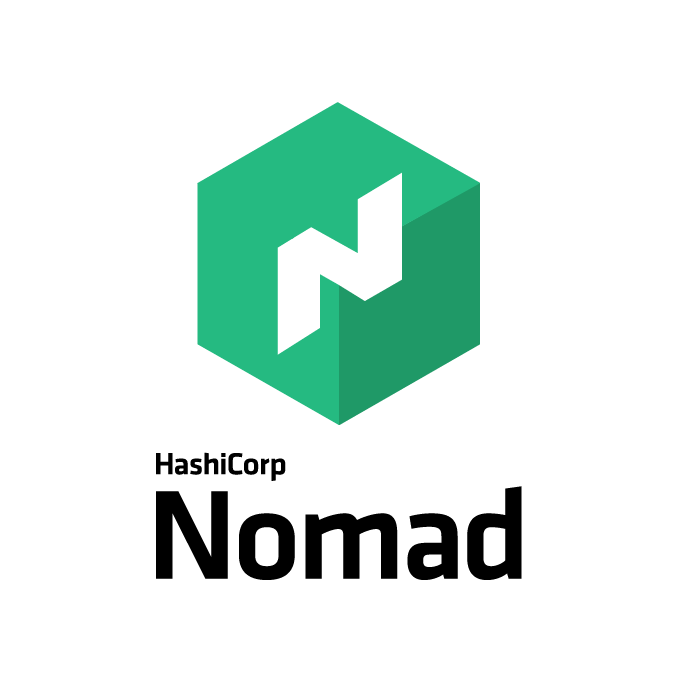
What is Hashicorp Nomad?
Hashicorp Nomad was introduced in November 2012 and the fouder is Noah Dentzel Brian Hahn Adam Miller.
Nomad is a flexible scheduler and workload orchestrator that allows an organization to simply deploy and manage any containerized and non-containerized applications across on-prem and clouds at scale.
It is able to run a diverse workload of Docker, non-containerized, microservice, and batch applications.
An agent is a Nomad client configured to run and manage tasks using available compute resources on a machine.
Nomad is broadly adopted and used in production by PagerDuty, Target, Citadel, Trivago, SAP, Pandora, Roblox, eBay, Deluxe Entertainment, etc.

What is the use of Hashicorp Nomad?
- Simple and Lightweight – Single binary that combines into existing infrastructure and Easy to operate on-prem or in the cloud with minimum overhead.
- Flexible Workload Support – Orchestrate any kind of applications (not just containers). Even though its a first class support for Docker, Windows, Java, VMs, and more.
- Modernize Legacy Applications without Rewrite – Gets orchestration benefits to existing services. Also achieves zero downtime deployments, improved resilience, higher resource utilization, and more without containerization.
- Easy Federation at Scale – Single command for multi-region and multi-cloud federation. As well as you can deploy applications globally to any region using Nomad as a single unified control plane.
- Deploy and Scale with Ease – You can deploy to bare metal easily same as in cloud environments. As well as scales globally without complexity.
- Native Integrations with Terraform, Consul, and Vault – Nomad integrates seamlessly with Terraform, Consul and Vault for provisioning, service networking, and secrets management.
Compare Hashicorp Nomad Certification Vs Kubernetes Certification
- Flexible Workload Support – Kubernetes has been created to orchestrate containers hosting workloads, whereas Nomad is recognized more for a workload scheduler that can be used to manage the deployment of both legacy and containerized applications, and scheduling batch jobs.
- End-to-end Container Orchestration – Kubernetes offers end-to-end container orchestration services comprising load balancing, configuration management, routing, feature gates, and service discovery. Nomad is fundamentally a task scheduling platform that can orchestrate different workload types as an expanded feature.
- Scalability – Both platforms has been created for autoscaling in large deployments, however Nomad is considered favorably to scale larger clusters than Kubernetes, Whereas Kubernetes has been built to support clusters with up to 5,000 nodes orchestrating a maximum of 300,000 containers, Nomad could scale clusters exceeding 10,000 nodes in production and surpassed the benchmark for the two million container challenge.
- Deployment Consistency – Kubernetes provides different deployment and management environments to make it easy for organizations to perform development and testing before pushing apps to deployment. These may create instability in configuration and abilities when going live. Nomad utilizes a single, portable library that could be deployed on any environment to offer the same user experience across different platforms.
List of Hashicorp Nomad Certification
There is no official certification for Hashicorp Nomad at this time.
Hashicorp Nomad Certification Path
As i said above there is no official certification from Hashicorp but you can get certified as DevOpsSchool certified Nomad engineer (DCNE) from DevOpsSchool.
Hashicorp Nomad Certification Cost
- Rs 20,000
Hashicorp tutorials
https://learn.hashicorp.com/nomad
Hashicorp Video
I’m a DevOps/SRE/DevSecOps/Cloud Expert passionate about sharing knowledge and experiences. I am working at Cotocus. I blog tech insights at DevOps School, travel stories at Holiday Landmark, stock market tips at Stocks Mantra, health and fitness guidance at My Medic Plus, product reviews at I reviewed , and SEO strategies at Wizbrand.
Please find my social handles as below;
Rajesh Kumar Personal Website
Rajesh Kumar at YOUTUBE
Rajesh Kumar at INSTAGRAM
Rajesh Kumar at X
Rajesh Kumar at FACEBOOK
Rajesh Kumar at LINKEDIN
Rajesh Kumar at PINTEREST
Rajesh Kumar at QUORA
Rajesh Kumar at WIZBRAND

 Starting: 1st of Every Month
Starting: 1st of Every Month  +91 8409492687
+91 8409492687  Contact@DevOpsSchool.com
Contact@DevOpsSchool.com
